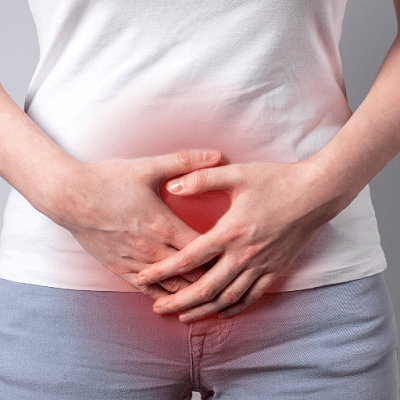
Thousands of people are impacted daily by various illnesses and ailments. Nonetheless, the wellness of women is frequently linked to some of its considerably prevalent and significant problems. Dealing with a moving pee could already be an overwhelming issue. However, Stress Incontinence in Dubai is an additional medical concern that may arise for women beyond a specific age or season in their lives. Stress incontinence treatment options include lifestyle modifications, strengthening the pelvic floor, medicines, and operations. Pelvic floor musculature counseling, a method used to strengthen the musculature that regulates urine, can be quite beneficial over time when paired with other therapies such as small pulses of electricity. New molecules are also being created to assist in reducing the indications of anxiousness in the bladder by relaxing weak arteries and enhancing the person’s ability to retain pee longer than before receiving a diagnosis. We are giving our experience to give you the finest care along with therapy choices if you have been labeled with this disturbing disease.
What is Stress Incontinence?
This uncomfortable problem is also known as Stress Urinary Incontinence (SUI). It is a health disorder characterized and distinguished by uncontrollable urine flow. Tension is exerted against the urinary tract and creates an uncomfortable disaster regardless of whether you are engaging in physically demanding tasks or merely experiencing an unavoidable instant such as giggling, coughing, sneezing, raising and or even sleeping. When tissues or muscles connected to the bladder’s support system become weak or injured, it becomes challenging to manage the fluid that collects inside the bladder’s tubes. As a result, an unanticipated or unanticipated release is expelled suddenly, resulting in Stress Urinary tract infection, a dangerous condition.
Outcomes:
Undoubtedly, when it comes to Stress Incontinence Therapies, it’s crucial to remember that everyone reacts uniquely to approaches. Alternative therapies are determined by criteria such as the severity of the ailment, individual preferences, and general health. Receiving medical counsel is critical for developing personalized therapy regimens and setting achievable goals for achievement. To obtain and maintain optimal outcomes, regular follow-up sessions and modifications may be required.
What Are the Root Causes?
Homecare in Dubai helps to identify the SUI that occurs when the pelvic region weakens. A set of musculature in the area nourishes and governs the ureter, the female reproductive system, and the abdomen. When the backing lacks power or administration, it prompts responsibility and leads your bowels to begin leaking even with minimal force. The following are a few of the elements that contribute to the undesirable circumstance:
Pregnancy:
For women, birthing is one of the primary manifestations of anxiety and leakage. The muscles that make up the pelvic floor could become weaker during childbirth, which increases the risk of incontinence from urine in later life.
Age:
The skeletal muscles in the whole body, especially those in the area of the pelvis, can gradually grow less flexible and strong as people age. The problem may result from this, particularly in postmenopausal women.
Menopause:
Females are more prone to stress-induced urination due to the alterations in hormones that accompany menopause’s impact on the general wellness of the pelvis organs.
Obesity:
Being overweight puts more strain on the strengths that make up the pelvic floor, which raises the possibility of stress-related incontinence.
Symptoms:
The most prominent symptom of Stress Incontinence is pee while your urinary tract is under duress. You may experience slight anxiety incontinence and lose a few drops of pee when you chuckle, cough, sneeze, or engage in strenuous activity. When you have an intermediate serious problem you might even lose more than one teaspoon of pee when you get up or lean over. Urine may even come out during a sexual encounter. The following are the symptoms are available at Homecare in Dubai:
- An unquenchable, unexpected need to urinate even after releasing a pee.
- You appear as though you are unable to urinate.
- Seeping when sniffling, smiling, or even working out.
- Several trips to the toilet, day or night.
- Uncomfortable accidents like damp sheets or clothing.
Diagnoses:
Along with asking about manifestations, a doctor will do a biological checkup (including a pelvic check for those who are AFAB). For a period of two to three days, you may be required to keep your bladder journal to track how much water you consume, toilet usage, and urination leaks. You have to document in your notes what you were up to before the disclosure. Your physician can diagnose you with the use of this information. Among the tests for stress incontinence are:
Urinary Pad Examination:
At home, you spend a whole day wearing one or more absorbency pads. To find out how much pee flowed, the service company balances the diaper afterwards.
Urinalysis:
It is a procedure that examines a sample of urine for indications of infections. If you suspect that you have blood in your urine (hematuria) or an infection of the urinary tract (UTI), a urine analysis can assist. These symptoms can point to a different issue.
Testing:
A quick examination is performed in your doctor’s office to ensure that you are voiding your bowels when you urinate.
Ultrasound:
An imaging procedure of the abdomen or pelvis evaluates the condition of the urinary tract, kidneys, and other structures.
Cystoscopy:
Your doctor examines your urinary system with a scope during a procedure for the evaluation.
Urodynamic Evaluations:
This category of procedures measures the efficiency with which your pouch retains and excretes pee. A post void retention urine test is part of urodynamic screening. The test gauges the amount of pee that remains in the following urination.
Which Treatment Options Are Available?
The greatest variety of medical problems are being treated and managed today thanks to advancements within the medical sciences, sophisticated procedures, and medications. Here is a quick Stress Incontinence treatment in Dubai:
Modification:
After assessing your health, a board-certified therapist will create a personalized programme. We’ll cover simple weight-loss workouts, effective ways to reduce or stop smoking, how to consume less alcohol and caffeine, and how to modify your lifestyle in general for better control over your issue.
Exercise:
Homecare in Dubai by strengthening the pelvic floor and empowering the surrounding muscles with exercises like Kegel. This training helps you acquire self-control and cut down on the number of times you use the toilet each day.
Botox injection:
Injections of Botox are a short-term fix for your existing issue. On the other hand, you may maintain the maintenance for a longer amount of time with follow-up sessions. The main component of the therapy is a formula for managing muscles that stops the contractions and gives you enough strength to prevent urine.
Medication:
Dietary drugs are tried-and-true ways to lower the amount of pee that your system produces. Corresponding to this, it helps with pelvic retention since the medications can enhance the reflexes or organs and treat internal abnormalities to give them optimal assistance.
Surgery:
When all conventional forms of therapy and medication seem to be failing to regulate the reception, surgery is usually seen as the final resort. Before scheduling the appropriate surgery for reversing your SUI illnesses, we need to know everything about your medical history, including the health history of your family, as well as the results of any required physical exams.
How Much Does The Procedure Cost?
The Cost Of Stress Urinary Incontinence in Dubai ranges from AED 180 to AED 3,500. Make an appointment for a free consultation with you. Because many elements can alter the cost of the method.
Who is Most Vulnerable to This Issue?
It affects women more frequently than it does males, particularly ladies who have given birth or are pregnant. Nonetheless, it can impact individuals of any age and gender.
How Can We Identify the Problem?
To determine the primary reasons, diagnostic procedures like testing, other activity assessments, or imaging exams may be performed in addition to a physical examination and a complete medical history review.
Is it Possible to Treat it With Lifestyle Changes?
Yes, there are benefits to some lifestyle changes. Symptom management may involve keeping a healthy weight, abstaining from coffee, stopping smoking, and adding pelvic floor exercises, or Kegel exercises, to your regimen.
Is it Possible to Manage the Issue With Drugs?
Homecare in Dubai provides certain drugs, such as alpha-blocking could be recommended to help relax musculature and enhance control of their pharmacology, not usually the initial course of therapy, though; depending on the situation, it could be taken into consideration.
When Should I Think About the Invasive Procedure?
When non-surgical therapies are deemed insufficient to relieve symptoms, surgery is usually contemplated. The goal of surgeries like reservoir neck suspensions and sling implantation is to offer both the urethra and more support.
Why Choose Us?
Even though it can be a difficult and often distressing disease, it’s important to know that there are efficient treatment alternatives accessible at The Dynamic Aesthetic Clinic In Dubai. For those with stress incontinence, seeking medical guidance, leading a healthy lifestyle. Fill out the form below and book a consultation.




























